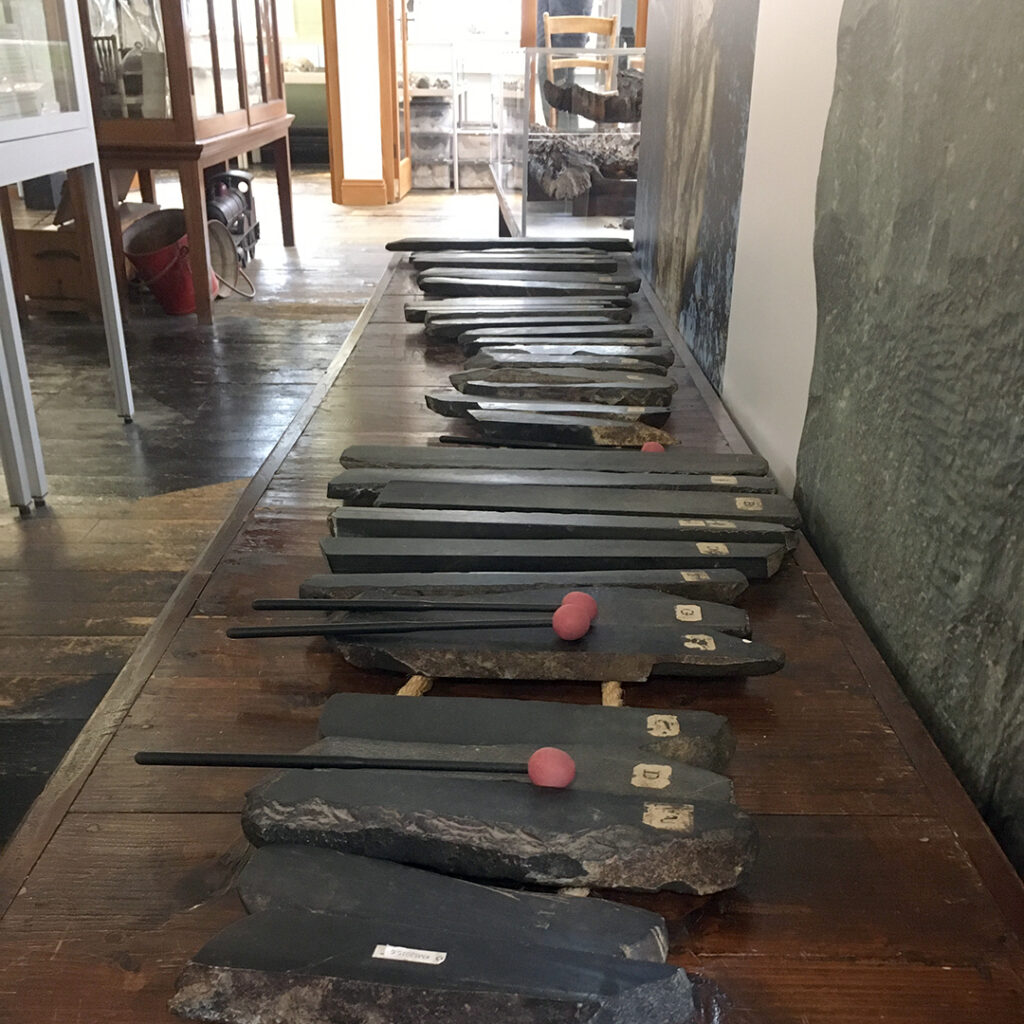
Lithophone expert Mike Adcock visited the museum recently and gave these beautiful instruments a tune.
About lithophones
A lithophone looks like a xylophone but it is made out of stone, rather than wood. ‘Lithos’ meaning stone in Greek, and ‘phone’ being voice or sound. Kendal Museum has two of these rare instruments. The larger slate one which has two octaves; the smaller one has six notes and is made of limestone from Scout Scar.
The musicality of these stones is owed to the unique geological conditions under which they were produced. In this case, the heat and pressure of volcanic activity above mud and siltstones that transformed it into slate. The seas of the Ordovician era teamed with life, and you can find a section of regional fossils in our Sedgwick and Ruthven room. A vast history of our local landscape rings out through these stones!
In performance
The composer Carl Orff in his Greek tragedy operas (Antigone 1949, Oedipus the Tyrant 1959 and Prometheus Bound 1968) wrote for ensembles of unusual instruments, one of which was a lithophone. (In his notes he called it a Steinspiel, which is the German version of our Greek word, stein meaning stone, and spiel play.)
The history of our limestone lithophone
The 1935 catalogue of Kendal Museum lists the smaller lithophone as, ‘A set of musical stones, gathered on Scout Scar by the late William Smallwood’. William Smallwood was a Kendal composer from a musical family. He was born here in 1831 and died in Kendal in 1897. He studied the organ in York but spent most of his life in Kendal and was the organist at Kendal Parish Church for fifty years. William was a music teacher and also a composer and wrote mainly for piano. He was known for his compositions for learners but he also wrote some hymns and anthems. He is buried in Parkside Cemetery.
Learn more:
Early lithophones included tunes played on stalactites. To learn more about lithophones across the world, check out Mike’s website, including this article about their history in Vietnam:
In search of Dan Da and the Mekong – Lithophones in Vietnam | (mikeadcock.com)
Please come and have a play on the fresh tones of these stones. We welcome virtuosos and amateur experimental musicians alike!

